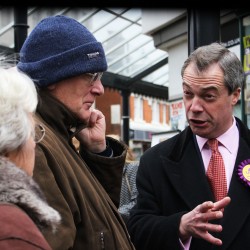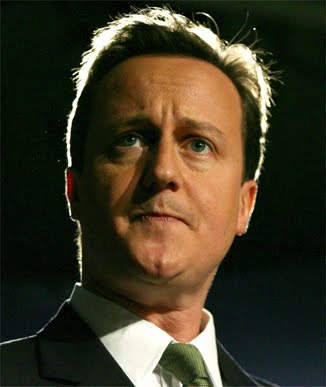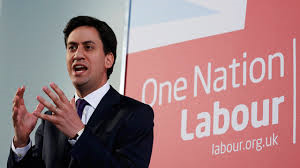
What would a constitutional convention for the UK look like?
In the wake of the Scottish referendum, the idea of a constitutional convention is gaining popularity. It appeals to the public and the Conservatives are now the only major party resisting a convention in principle. However, as has been discussed on the UCL Constitution Unit blog, the process of realising a convention that can deliver subsequent reform is likely to be fraught with difficulties. If Labour, the Liberal Democrats, the Greens or the SNP were pushed to define the nature and purpose of a UK constitutional convention, it is almost certain that any consensus would fall apart very quickly. At a recent Constitution Unit seminar, Dr Alan Renwick, Reader in Politics at Reading University and author of After the Referendum: Options for …

The 2015 Election: Do all roads lead to UKIP?
Do the Conservatives or Labour need to worry most about UKIP in 2015? Certainly, Labour constituencies see fairly high levels of UKIP support (notably at the recent Heywood & Middleton by-election), suggesting there is credence to the argument that Labour is losing its disaffected traditional and typically working class voters to UKIP. At the same time we have already shown (Evans and Mellon BES Blog 2014) that most UKIP voters say they had previously voted Conservative. So is the argument about UKIP stealing core Labour voters spurious? How do we reconcile evidence of UKIP support in traditional working class Labour constituencies with the individual level evidence that UKIP voters, or at least those currently intending to vote for UKIP, report being Conservatives in 2010? In this blog we develop a better understanding of the sources and implications of UKIP support by looking back over a longer time period.
Our argument is that Labour’s move to the ‘liberal consensus’ on the EU and immigration left many of their core voters out in the cold a long time before UKIP were an effective political presence. These voters left Labour in 2001, 2005 and 2010. To some degree therefore what UKIP are doing is picking up already disaffected former Labour voters from the Conservatives and elsewhere. UKIP will not be a great threat to too many Labour seats, they will probably steal more votes from the opposition parties in those seats, or people who had not voted in 2010. Hence the ‘mis-match between’ constituency level findings and individual voters’ reported patterns of defection.

Valorised and Vilified: What Do ‘Citizens’ Do? Initial Linguistic Reflections
It is clear that debates about ‘who’ citizens are (as well as normative claims about who they ‘should’ be) are important to understanding the politics of citizenship. However, reflecting on the remit of this special series on ‘Migration and Citizenship’, another fundamental question occurred to me: what do citizens do? Describing the kinds of actions and activities in which citizens—however we may define them—reportedly engage could open further discussion about the nature of citizenship itself.
In my current work with the Centre on Migration, Policy, and Society (COMPAS), I focus on the ways that British newspapers talk about migration issues and relate these narratives to public perceptions and migration policy changes. Using techniques from corpus and computational linguistics, which enables researchers to analyse large amounts of text, I look for (ir)regularities and significant patterns of words. These contextual patterns, called ‘collocations’, can provide insight into a concept: one of the major contributors to linguistics, John Firth, famously expressed this feature of language when he said ‘you shall know a word by the company it keeps’. Applying Firth’s guiding principle to study of UK press portrayal of migrant groups reveals that, in the case of immigrants and asylum seekers, their company is relatively negative. Dr Scott Blinder and I showed that from 2010-2012, the British national press most often described ‘immigrants’ as ‘illegal’ while portraying ‘asylum seekers’ as ‘failed’.
But what about citizens? What does this group of people reportedly do in the context of migration coverage?

Where is British conservatism today?
On Friday 10th October 2014, Britain woke up to the news that the voters of Clacton-on-Sea had elected a UKIP Member of Parliament. To some, no doubt, this marked the inevitable culmination of the fracturing of the British right that began over twenty years earlier with the ratification of the Maastricht Treaty, under the auspices of the then Conservative Prime Minister, John Major. It was this episode that led first to the formation of the Anti-Federalist League and then to its successor organisation, the United Kingdom Independence Party, in 1993, which has since attracted significant numbers of disaffected Tories, angry at the Conservative’s apparent acquiescence to further European integration. UKIP has grown now to a membership of over 35,000 and seems to be finally breaking out of its single issue, single personality mould, to become a real electoral challenge to the Tories. The recent defection of two sitting Conservative MPs, Douglas Carswell and Mark Reckless, to UKIP, confirms for some people what they have been thinking for a long time: that the Conservative Party no longer does what it says on the tin, that it is, to quote the journalist Simon Heffer, “insufficiently conservative”, the torch of conservatism having now passed to Farage and co.
In this post, the first of three on conservatism in Britain, I want to consider the plausibility of this claim, as part of a broader attempt to determine which political party in Britain today has the most convincing claim to the mantle of conservatism.[1] The answers are by no means clear-cut (they rarely are in politics) and may even seem counter-intuitive. It must be stated at the outset that conservatism is not, by any means, a single, coherent or homogenous ideology. It consists of various branches and traditions and shares similarities with other, nominally distinct, philosophies—notably liberalism. This undoubtedly complicates the task in hand, but it is important to recognise the complexity of the object of study before embarking on the analysis.

Citizenship and identity: The new Britons in an age of resurgent Englishness
In the 1990s, commentators across the political spectrum observed the rise of civic British national identity in the UK. Both the Major and Blair governments promoted “active citizenship” and rolled out polices such as Citizenship Ceremonies for the naturalised and citizenship education in schools – with the civic republican philosopher Bernard Crick a significant influence over many of these reforms. From a very different angle, the Britpop moment and “cool Britannia” brand made the Union Jack fashionable. A confident multiculturalism and relaxed, mongrel Britishness was part of the zeitgeist.
From the vantage point of 2014, that moment seems very distant. In the last decade, we have seen instead a resurgence of the infra-national identities of the UK’s constituent countries: the renaissance of Scottishness in Scotland, the rise of Welshness in Wales, and – much less reflected upon – the return of Englishness in England.
The return of the English
The 2011 Census included a national identity question. It showed that, in England, Englishness is the predominant national identity, expressed by two thirds of the population (with 58% choosing only English identity), while just 29% identify with Britishness (19% choosing only British identity).
For many, this kind of Englishness is probably expressed activities such as cheering on (or moaning at) English sporting teams. But we have also seen its political mobilisation: in resentment at Scottish power in Westminster, in the sinister street theatre of the English Defence League and its offshoots, and in the rise of UKIP.
It is important, however, to note the geographical and generational dynamics of this resurgent Englishness.

Ed Miliband’s Labour and ideology. Did New Labour change the party forever?
In 2010, Ed Miliband inherited a party troubled by tensions and confusion. After three electoral victories and 13 years in office, New Labour had lost its appeal due to the legacy of the Iraq war, a series of burning scandals and endless backbenchers’ rebellions. Blair had resigned in 2007, replaced by his eternal rival Gordon Brown, with many of those within Labour seeing him as more traditionally left-wing and able to rescue the party from its decline. Yet, the 2008 financial crisis had promptly interrupted Brown’s brief honeymoon with the electorate and Labour had lost the 2010 General Elections, leading to a Conservative-Lib Dem coalition government. Ed Miliband, a young Brownite, then won a bitter leadership contest, in which the main adversary was his brother David, one of Blair’s closest advisors. Ed obtained the support of most of the Unions and of many social-democrats who had at some point started to despise the Blairite model, examples being Roy Hattersley and Neil and Gladys Kinnock. He did so by differentiating himself from the previous leadership, declaring that New Labour was over and running a quite leftist campaign.
Four years later, many question what the current leadership actually stands for and whether Labour has witnessed an authentic ideological revision. On the one hand, Miliband launched the new slogan ‘One Nation Labour’, inspired from a famous Disraeli’s speech, which has been praised as an attempt to revitalise socialism in the context of the current economic crisis, as well as criticized for flirting with rightward doctrines such as compassionate conservatism. On the other hand, he has often declared his preference for an open and pluralist model of leadership and defended the value of a lively internal debate. Therefore, despite describing himself as ‘a European social-democrat who takes inequality very seriously’, Miliband has witnessed and even promoted the rise of a number of ideological sensibilities.
Party factions, think-tanks and research institutes defending sometimes very different positions, such as Progress, Compass, Tribune or Briefing, all contributed to this lively debate.

EU Commission hearings at the European Parliament
n October 2014, candidates for the new European Commission were put through their paces at public hearings of the parliamentary committees responsible for the portfolio to which they have been assigned at the European Parliament in Brussels. This process represents an important opportunity for citizens to examine the proposed Commissioners (Commissioners-designate) before they take office, and shows the Parliament, the only directly elected European institution, increasing in legitimacy and relevance.
The Commission, the powerful executive arm of the European Union (EU) is composed of one representative from each of the EU’s 28 Member States, and is responsible for upholding the Union’s treaties, for proposing legislation and implementing decisions, and for the day-to-day running of the EU institutions. This includes participating in the design and enforcement of bailout agreements for crisis-stricken member states, wide-ranging economic surveillance of national budgets, and the allocation of billions of euros in funding each year.
The job of assembling a team of Commissioners that strikes an acceptable balance between the size and location of each Member State, as well as the nationality, gender, political affiliations, and attributes of individual candidates, falls to President-elect Jean-Claude Juncker, a Luxembourgish Christian Democrat. Juncker spent the months since the European elections in May 2014 negotiating with national governments, political parties, and candidates until in September the Brussels rumour-mill ground to a halt with the announcement of the proposed Juncker Commission.
Juncker’s team are not yet able to seek refuge on the thirteenth floor of the Berlaymont, the Commission’s headquarters in Brussels, as the Treaty establishing the European Community (TEC, Article 214(2)) provides for Commissioners-designate to be approved by Parliament before taking office. Members of Parliament (MEPs), scrutinise the credentials of Commissioners-designate via a series of 3-hour public-hearings, where candidates are grilled on their qualifications, knowledge of their proposed portfolios, inter-personal and communication skills and indeed, their political and personal lives.
Commissioners-designate are nominated by national governments, and once in office, little scope exists to allow for their removal. These hearings therefore provide an important opportunity for democratic oversight and transparency on behalf of European citizens.

A mayor for greater Bristol?
So, the Bristol Post have launched their Make Bristol Greater campaign, aimed at raising the debate about what the Bristol city region should be called and what its governance should look like. Their comment piece picks out the geographical and political constraints holding Bristol back, and for once I find myself agreeing with much of what is said in the article. Bristol is so tightly constrained by its administrative boundaries that don’t even cover the whole urban area, that decision making about strategic issues across council boundaries is like a game of ‘chance’ or ‘bluff’, based on little more than the small minded politics of jealousy and competition. We constantly compromise and reduce decisions to the lowest common denominator because we are afraid …









